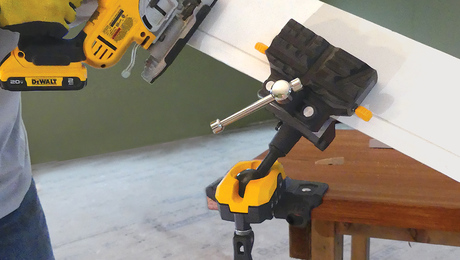Hi all. I moved from colorado to north carolina a year ago and had to deal with 90+ degree temps for the first time in a while. I bought an old, poorly insulated house that gets hot as all get out in summer. Would more attic insulation help keep the house cooler? Do attic fans help signifigantly? If so, in what configurations (placement, access, etc). Thanks.
,earl
“He who xxxxs nuns will later join the church.” –The Clash



















Replies
Hi
Insulation in the summer will help reduce the sun's heat's effect each day. Cellulouse and foam insulations do this better than Fiberglass (better barriers to infra-red radiation).
With an effective layer of insulation in your walls & ceiling, you can draw cooler air inside each night via an attic fan, then each day the sun will have a harder time raising the temp inside. Note that windows will let in as much IR as ever, so you'll want an outside shade for each of them (curtains stop the heat AFTER it has already entered your house, so will be less effective).
An attic fan can not cool your house below the outside temp, and will also draw all of the humidity, dust and pollen inside too. In a humid environment it may be better to invest in an air conditioner instead of an attic fan for those reasons. This is a personal preference for some, but I like to keep the humidity below 70% in the summer, inside my house, to prevent mold, musty smell in stored clothes and books, and just general comfort, but my neighbor loves it, keeps lots of indoor plants (big source of indoor humidity) and has never owned an A/C (this is in SE Michigan).
I put an attic fan in my house (again, SE Mich) and used it for one spring, but saw how much dirt was being pulled into the windows, and got too 'sticky' trying to fall asleep each night, and put in an A/C and only use the attic fan for cooling the attic when I have to work up there!
Norm
I concur. I have a cape code house that when I bought it (built in '55) had NO insulation.
Well, it had this "insulationg" called Alfoil (basically some reynolds wrap and paper). Ha! Anyway, hotter than hell in the summer and you could feel the cold in the winter.
Re-did the attic and had cellulose blown in (put new dormer and everything on), plus had the "floor" between first and second story insulated as well.
What a difference it made.
In the summer I will say use the AC. VERY rarely do we get "cool" at night up here in New York and even if it "cool" (ie, 70 or so) it'll still be like 50-60% humidity or more.
On occasion I have wanted the central air to act as a vent and simply"suck" in outside air, but I guess they're not made that way. In that case, get one of those little window fans and use it. You can put a pre-filter in the window to get rid of the dust and some of the pollen (you can even use a regular old furnace filter sometimes too)
--Kevin
Commercial HVAC units have a device call an economizer that does exactly what you are talking about. It is a damper controled fresh air intake and an outside air temperature/ humidity sensor. Set points for damper and sensor controls can be varried, so you can some of the parameters of its operationcan be controled. Most commercial operations are required to have a minnimum amount of outside air supply to a building at all times (5-10%).
In residential new construction with super insulation and tight houses an HRV (heat recovery/ventilation) does a little of what economizers do in commercial applications. They are mostly applied to heat recovery from exhaust fan use and bringing in enough outside make-up air to keep from creating a negative pressure inside the home.
BTW ecconomizer in commercial operations account for from 20 to 40% of the wasted energy in a buildings operation. Most of that occurrs because of poor maintenance of the dammper control arms and motor controls.
Dave